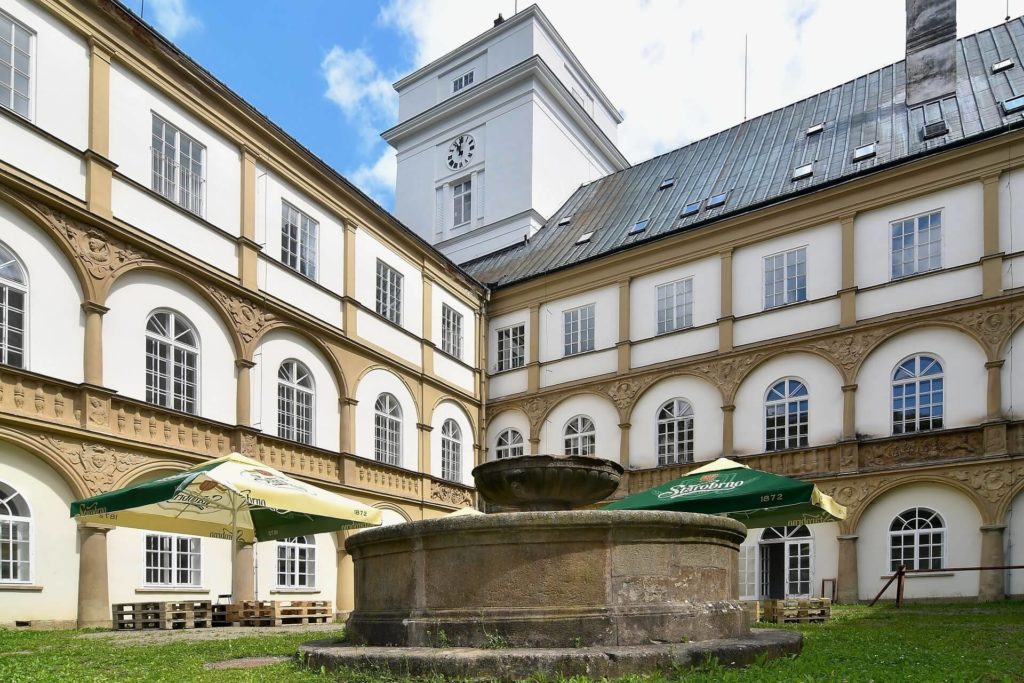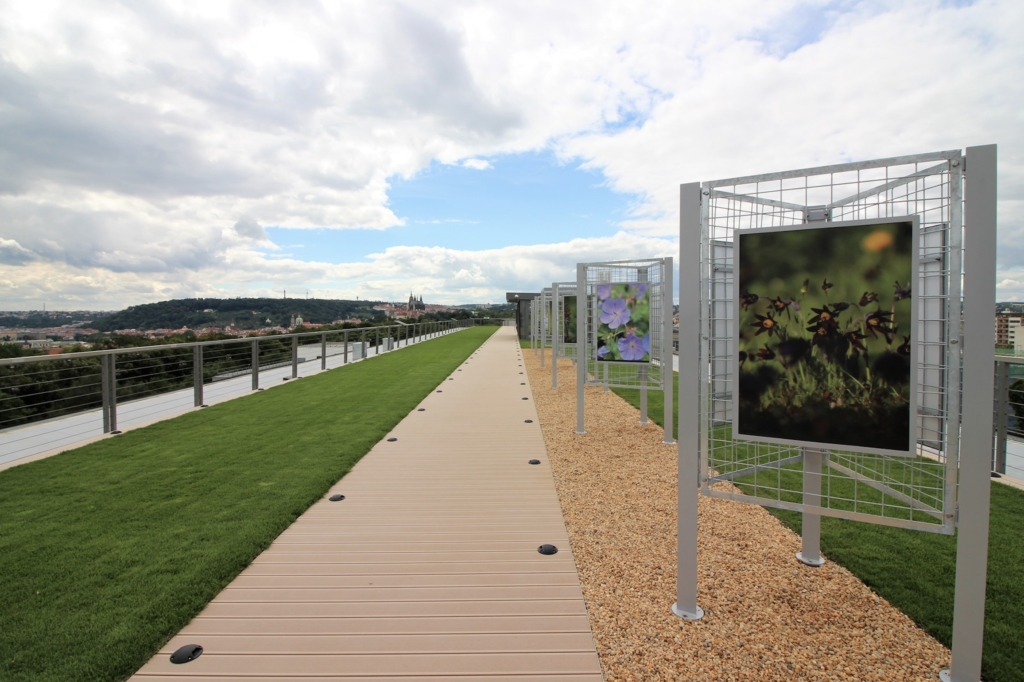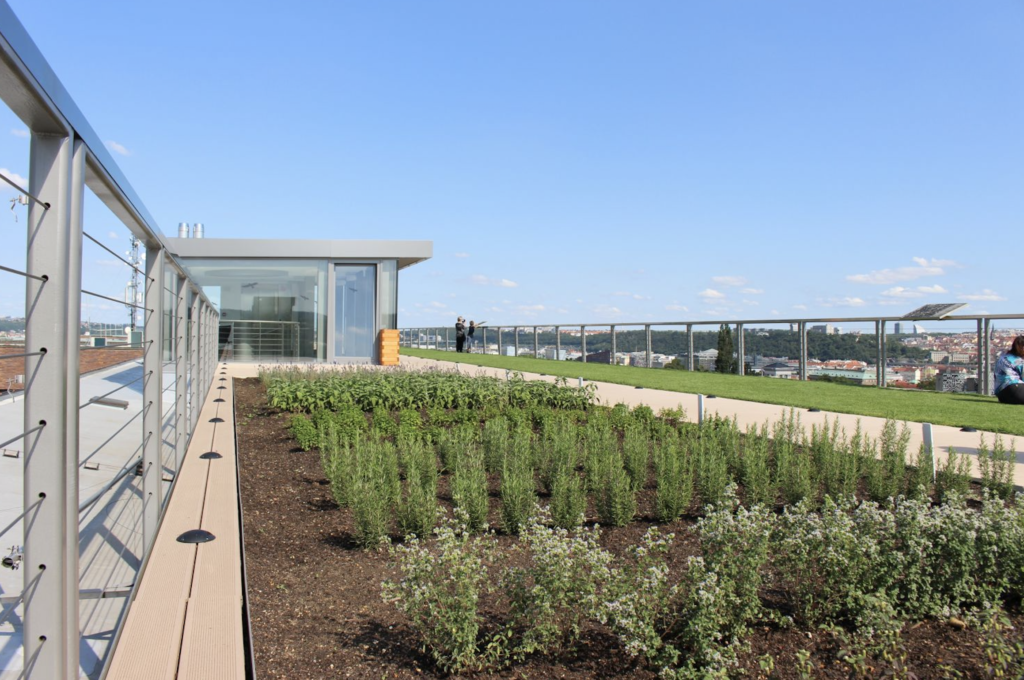The United States is currently the country most affected by COVID-19 with more than 125,000 deaths.
On World Cleanup Day, 19 September 2020, millions of people in over 150 countries will stand up against global waste pollution by cleaning up communities, parks, forests, and beaches.
Thousands of communities will act together as one, creating a powerful ‘green wave’ of cleanups spanning from New Zealand to Hawaii and lasting for 36 hours.
“During World Cleanup Day last year, nearly 18 million volunteers from 157 countries around the world managed to collect 82,000 tons of waste,” said Miroslav Kubásek, National Coordinator of World Cleanup Day for the Czech Republic.
The aim of World Cleanup Day is not only to pick up waste, but to also raise awareness of the severity of the global climate crisis, drive behaviour change towards less consumption and induce companies, organizations, and governments to adopt more sustainable environmental policies.
World Cleanup Day is organized by Let’s Do It World – a global movement that supports and connects a new generation of community leaders, who are ready to act together to find lasting solutions for the waste problem in their countries.
Taking place on the third Saturday every September, National CleanUp Day was founded to rally volunteers to better our environment by collaborating with one another to improve their local communities.
Any individual, group or organization can start their own cleanup by simply going to the event’s site and signing up.
You can check out the cleanup map and join an event near you. If there is no event organized near you, in your city or neighborhood, take your own initiative and organize a public cleanup yourself.
Ukliďme Česko is a voluntary cleaning event that takes place all over the Czech Republic (and even in a few places outside of it). Its purpose is to clean up illegal black dumps and mess. The event is organized by NGO Ukliďme Česko z. s. in cooperation with other organizations.
The Czech authorities recorded 506 new coronavirus cases on Friday, the highest number of new infections in one day since the outbreak began.
Czechia has so far reported 21,551 confirmed cases of the virus, with 411 deaths, including 19 over the past week.
The Czech government was among the first in Europe to introduce curbs on movement and business as the outbreak took hold. It began to lift restrictions since May but has reintroduced some measures as cases rose in recent weeks.
Face masks will once more be compulsory on public transport, at health and social care facilities, and in state office buildings from Sept 1, but the government rowed back on a requirement to wear masks in shops, restaurants, and common areas of schools.
Outdoor public events including soccer, which start new league season this week, may be attended by up to 5,000 people, if separated into sections of 1,000, and indoor events can host up to 5,000 in separate sections of 500.
The government plans to further relax restrictions on public events from September.
- If you are looking for a job in Prague, check our new job section here
- Time to move to a new flat? Rents with no commission here!
- Want to advertise your business on Prague Morning? Contact us at info@praguemorning.cz
For the first time in history, lovers of castles and historic buildings can visit the Renaissance chateau in Račice (Vyškov region).
In 2017, the South Moravian Region sold the building to the company e-Finance, which rebuilt the chateau into a wellness hotel within five years for about CZK 150 million.
The complex, which dates to the 13th century, is a great starting point for cycling and hiking in Drahanská Highlands close to the Moravian Karst.
You can take a cycling path through the heart of South Moravia, visit the unique natural area of Velká dohoda or a nature park with the educational trail through Rakovec valley.
The first written mention about the Račice castle is from 1312 when Jan Lucemburský had it besieged. In the 14th century, it was renewed and belonged to the lords of Lipá.
In 1376 it became a part of the Šternberk property and later was given to the lords of Kravaře. In the end, it became the property of Hanuš Haugvic of Biskupice, who changed it into a renaissance chateau.
The town of Račice is located north-east of the town of Roudnice nad Labem on the left shore of Labe River. It is located 158 m above sea level. Until the end of 80’, Račice was the part of the town of Štětí.
Račice was established in 1295 by King Vaclav II.



- If you are looking for a job in Prague, check our new job section here
- Time to move to a new flat? Rents with no commission here!
- Want to advertise your business on Prague Morning? Contact us at info@praguemorning.cz
Three countries have decided to tighten measures for Czech citizens due to the epidemiological situation in the Czech Republic as the daily increase in coronavirus cases in recent weeks is about 200, much more than at the beginning of July.
During Thursday night, Slovenia became the latest country to change the rules for Czechs and, suddenly, put the Czech Republic on the list of medium-risk countries.
Upon entering the country, a two-week quarantine is mandatory for Czech citizens. If they only need to pass through the country, this restriction does not apply to them, but the transit must not exceed 12 hours, the Czech Ministry of Foreign Affairs stated on its website.
On Thursday, Norway also imposed restrictions on the Czechs – they have to spend ten days in quarantine after entering the Scandinavian country. Oslo placed Czechia on the traffic-light system “red” list together with France, Switzerland, and Monaco. Norwegians are also advised to travel to these four countries only when necessary.
Currently, Norway allows free travel to people from countries that have registered less than 20 coronavirus cases per 100,000 population in the last two weeks, which is not the case for the Czech Republic.
This week, Ukraine also decided to include Czechia among countries with an unfavorable epidemiological situation. Thus, upon their arrival in Ukraine, Czechs have to submit a negative coronavirus test or stay in quarantine.
- If you are looking for a job in Prague, check our new job section here
- Time to move to a new flat? Rents with no commission here!
- Want to advertise your business on Prague Morning? Contact us at info@praguemorning.cz
Two thousand people have been gathering from Friday night at a techno party at Hlaváček Lhota (Benešov region).
“The open-air event is being held on private property with the owner’s consent”, said police spokeswoman Lucie Nováková, “so it cannot be considered illegal.”
Techno lovers are being closely monitored by the police.
According to Nováková, the party started on Friday evening. “Since Friday evening, Central Bohemian police officers have been monitoring the place, directing traffic on the driveways,” added Nováková.
More than half of the participants left today afternoon. According to the police, about 800 people are still raving, a quarter of them are foreigners.
“The place is also monitored by a helicopter of the Czech Police Aviation. Until now, police officers have not had to deal with any serious disturbances of public order,” said the police spokeswoman.
According to Lenka Sladkovská, mayor of Ješetice, the situation is very unpleasant. “I’m dealing with the situation here, but I’m not going to give any interviews at the moment.”
Events may still be organized with up to five sectors with 500 capacity each, technically raising the limit to 2,500. The sectors must be completely separated from each other, including a separate entrance. Outdoor events will be limited to 1,000 people.
The Czech Republic reported 281 cases of the new coronavirus on Friday, the largest one-day increase since the end of June, bringing the country’s total to 15,081.
From Monday, July 27, the public will be required also to wear a face mask in pharmacies and medical facilities, “where it is not always possible to maintain a two-meter distance from other people”, the Czech government said in an update on its website. Masks will not be compulsory on trams, trains, or in shopping centers.
Stř. Čechy: Policisté monitorují od pátečního večera průběh technopárty na Benešovsku s využitím Letecké služby PČR. Zatím klidný průběh bez narušení veřejného pořádku. Podrobné informace zde: https://t.co/w7k093bLm3 #policiestc pic.twitter.com/3LG7mUVnPv
— Policie ČR (@PolicieCZ) July 25, 2020

Photo: Policie CR

Photo: Policie CR

Photo: Policie CR
- If you are looking for a job in Prague, check our new job section here
- Time to move to a new flat? Rents with no commission here!
- Want to advertise your business on Prague Morning? Contact us at info@praguemorning.cz
From Saturday, July 25 at midnight, it will be mandatory to wear face masks at indoor public gatherings with over 100 people, including nightclubs. The Health Minister Adam Vojtěch (ANO) informed Czech Television today afternoon.
“We are not planning to close certain industries or limit the free movement of people, but prevention is needed. The measures taken are based on information from the regional hygienic stations,” said Vojtěch.
“This measure does not concern shops or restaurants, but specifically sports and cultural events,” the minister specified.
A maximum of 500 people seated in five separate sectors, each comprising 100 people, will be allowed at indoor events.
The number of cases is growing, but the risk group over the age of 65 is not affected and there are no more serious cases that require hospitalization. “However, a number of smaller outbreaks show that there may be potential for a community spread,” said the minister.
An outbreak of coronavirus linked to a music club in Prague has recently increased to 98 cases, including footballers from several of the city’s clubs.
PM Babiš stressed that the Czech Republic had managed the first wave of the epidemic very well, but expressed concerns about the daily increase in coronavirus cases.
The number of new cases in the Czech Republic has been growing significantly in recent days. On Tuesday, the country recorded 212 new positive people. On Wednesday, 247.
The number of active coronavirus infections topped 5,000 in the Czech Republic for the first time after labs reported the highest daily rise in nearly a month.
The Czech government will discuss the resumption of the Central Crisis Staff on Monday.
- If you are looking for a job in Prague, check our new job section here
- Time to move to a new flat? Rents with no commission here!
- Want to advertise your business on Prague Morning? Contact us at info@praguemorning.cz
The European Committee of Social Rights (ECSR) has found violations of the right to equal pay and the right to equal opportunities in the workplace in 14 out of 15 countries which apply the European Social Charter’s collective complaints procedure: Belgium, Bulgaria, Croatia, Cyprus, the Czech Republic, Finland, France, Greece, Ireland, Italy, the Netherlands, Norway, Portugal and Slovenia.
Only Sweden was found to be compliant with the Charter.
“The gender pay gap is unacceptable in modern societies, yet it continues to be one of the main obstacles to achieving real equality. European governments must urgently step up efforts to ensure equal opportunities in the workplace. And more countries should use the Council of Europe’s Social Charter as one means of reaching that goal,” said Marija Pejčinović Burić, Secretary General of the Council of Europe.
Complaints to the ECSR, which monitors the implementation of the Charter, were lodged by the international NGO University Women of Europe (UWE).
While the ECSR found that all 15 countries concerned had satisfactory legislation recognizing the right to equal pay for equal work, it found various violations – bar Sweden – primarily due to insufficient progress in reducing the gender pay gap, but in some cases also due to lack of pay transparency in the labour market, ineffective legal remedies and the insufficient powers and resources of national gender equality bodies.
Moreover, despite quota arrangements and other measures, women also continue to be under-represented in decision-making positions within private companies. The ECSR noted that the gender pay gap had narrowed in some countries, but progress was insufficient.
Background
The ECSR monitors compliance with the European Social Charter under two complementary mechanisms: through collective complaints lodged by the social partners and other non-governmental organizations (collective complaints procedure), and through national reports drawn up by Contracting Parties.
According to the Charter, the right to equal pay must be guaranteed in law. The ECSR has identified in particular the following obligations on participating States:
– To recognize the right to equal pay for equal work or work of equal value in their legislation;
– To ensure access to effective remedies for victims of pay discrimination;
– To ensure and guarantee pay transparency and enable pay comparisons;
– To maintain effective equality bodies and relevant institutions in order to ensure equal pay in practice.
RegioJet has announced it will stop selling train tickets to Ljubljana due to a change in travel conditions to Slovenia.
The train connections from the Czech Republic to Croatia will not be affected by the new restriction. The carrier allows all the passengers to request the ticket cancellation and refunds, said RegioJet spokesman Aleš Ondrůj.
Passengers will receive further information via SMS.
One-way fares tickets to Croatia cost CZK 590 per person, with the compartments available for groups. Berths in couchette coaches for individuals or groups start at CZK 790 per person.
All fares include seat reservation, free coffee, and breakfast, WiFi, and access to free entertainment services.
The service will operate three times a week between the Croatian coastal town of Rijeka and Prague, Pardubice, Brno, and Břeclav in the Czech Republic, Bratislava in Slovakia, and Csorna in Hungary.
The service will run between June 30 and September 26, and the fact that as many as 30 thousand tickets were sold in the first two weeks speaks clearly about the great interest for this offer.
The service also includes bus connections to 30 locations on the Croatian coast, which will be available for an additional fee of CZK 200 or 300 depending on the distance.
RegioJet a.s. is a private Czech provider of rail and bus passenger transport and a leading long-distance railway company in Central Europe. They have 20 million passengers a year, 11 million in rail and 9 million in bus transport.
Due to a rising number of COVID-19 cases over the past few days, Slovenia has decided to remove the Czech Republic from its “green list” of epidemiologically safe countries and put it on the “yellow list” of less safe countries, the government’s spokesman Jelko Kacin said in Ljubljana.
He explained to a press conference that the government had made the decision on Thursday and that it would enter into force as of midnight Saturday.
Czechs can freely come to Slovenia only if they own property in that country or have booked some tourist accommodation.
In addition to the Czech Republic, Croatia and France have also been demoted to the yellow list while Belgium and the Netherlands have been promoted to the “green list”.
A few days ago, Kacin explained what it means to be on the “yellow list”. “If the country is placed on the yellow list, then a Slovenian citizen or foreigner with permanent or temporary residence in Slovenia – if they come from the EU or the Schengen area – enters Slovenia without quarantine. For other persons, a 14-day quarantine is mandatory,” he said, but also stated that there are 15 exceptions to that decision.
You can find the list of exceptions here
According to Gantar, a new government decision and the tightening of epidemiological measures are needed as part of the deteriorating situation in the region, but also in Slovenia, where more and more new local infections are being transmitted after the virus was imported, especially from “red list” countries such as Serbia, North Macedonia, BiH and Kosovo.
There were 132 new COVID-19 cases reported in the Czech Republic on Thursday, bringing the total number of cases to 12,046.
7,797 of them have been recovered, 349 people died. There are currently 3,900 infected in the country.
For more info, check out the Slovenian Ministry of Interior website
The Polish-Czech border in Silesia province, southern Poland, fully reopened on Tuesday, June 30, and travelers will no longer be required to submit current coronavirus, the Czech Health Ministry said on Monday.
Earlier, people travelling to the Czech Republic from Silesia had to provide negative coronavirus tests, not older than four days, or, if positive, they were put under quarantine.
The Czech services demanded, from persons crossing the border, evidence that they had not stayed in the Silesia province and were only passing through in transit. These restrictions and border controls will expire on Tuesday.
The Czech Republic restored normal border traffic and lifted border control on internal borders of the Schengen zone in mid-June but this decision had not applied to all areas.
Poland’s Silesia was recognized as an area with a high epidemic threat and was not covered by the June 15 decision.
European Union will reopen the borders to citizens of 14 countries starting from July 1: the list includes Australia, Canada, South Korea, Japan, New Zealand, Rwanda, Thailand, Uruguay, Algeria, Morocco, Tunisia, Georgia, Montenegro, and Serbia.
Travelers from China would be approved to enter, but under the condition that Beijing would do the same for Europeans.
The document is yet to be formally agreed by the Council of the European Union next week.
Some EU countries have requested a delay in the decision for further examination, meaning the decision may be revised. The list is not entirely binding, border management remains a matter of national decision.
“There are still ongoing consultations, which will continue until Monday,” an EU source said.
“There is no visibility on where this will go, but the presidency still hopes to put this matter to a vote on Monday,” the source added.
Brussels is following a principle of a joint agreement by EU countries based on criteria such as “health status, ability to apply containment measures during travel and reciprocity considerations”.
For now, countries like the United States, Russia, and Brazil are left out, where the epidemiological situation does not offer security for fear of new outbreaks.
On March 11, 2020, the WHO declared the COVID-19 outbreak a pandemic. According to the latest statistics, over 9,724,100 people have been infected worldwide and more than 492,000 deaths have been reported.
Every Thursday evening and until the end of September, you can enjoy a unique view of Prague on the roof of the National Agricultural Museum in Letná.
The National Agriculture Museum has been recently reconstructed and restored to its 1930s look, a process that also made the roof terrace accessible.
The terrace offers unique and attractive views at Prague, including the Prague Castle, Petřín or Old Town. The garden with soft grass, a herb garden, a picnic area is great for relaxation. What is also interesting is that there are also beehives.
Aside from the smell of the herb garden, you can also rent some picnic equipment, buy some quality Czech food in the museum shop, and enjoy the amazing scenery.
Visiting the museum is an excursion into the field of agriculture, with which the people living the center of Prague really do not come across. The whole exhibition is conceived as a story that leads the visitor through the history of the hard work of farmers.
The National Museum of Agriculture was founded in 1918 but its oldest part, the museum at the Ohrada hunting lodge, started its activities in 1842. It is apparently not only the oldest specialized forestry-hunting museum in the Czech Republic but also in Europe.
The terrace is open every Thursday from 17:30 until 21:30. Adults pay CZK 50, people under 18 and seniors over 70 have free admission.
Looking for a job in Prague? Visit our new job section!




